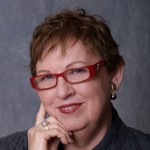What are SEED Communities?
We use the word “community” to mean a group of people who share a set of value-sourced aims and a philosophical approach to achieving them. They believe they are stronger and smarter together than they are alone, that they grow and develop more effectively in community and that together they can make a bigger difference in the world. We have worked to build communities – not just of interest, but of intention and philosophical approach to achieving aims – for four decades.
Our corporate company, Carol Sanford Institute, has provided consultation to a broad diversity of natural work groups for more than four decades, from business units and merger, acquisition and divestiture teams, to students who want to be leaders and change agents. We have witnessed the power that people develop when they count on one another to produce better decisions and results. Our primary focus has been on work with business leaders and their teams who have a profit-and-loss responsibility and on developing an offering for them that addresses the full spectrum of functions needed to achieve strong results. Our primary method has been to help them form what might be thought of as a family or community with a strong developmental culture.
Such a culture produces not only significantly improved business performance; it also makes a difference in the lives of the end users of the business’ products and services. It evokes meaningful contributions from the co-creators who bring offerings from concept and raw material to fruition and delivery. It regenerates Earth and ecosystem health and augments local and regional community identity and expression And it brings enduring returns to those who invest in the business and its creativity.
SEED Communities bring this same value to individuals and small business teams who benefit from longer term connections to grow their businesses, find better paths through the confusion of competing opportunities and foster innovation that produces significant impact within their industry and beyond in the larger world. Working with us enables them to build a community that is trans-company, trans-industry and trans-growth stage.
SEED is our philosophy for working with clients.
We call them SEED Communities because this powerful metaphor precisely describes our work.
The seed holds a very great secret—it never gets old. It is the eternal YES to life. – Anat Vaughan-Lee from “The Language of the Seed”
We also mean something specific by each letter of the word.
Systems and Strategic Decisions – Thinking in frameworks, metaphors and ways of generated from living systems is a foundational capability that sets the direction for a responsible enterprise.
Effects and Effectiveness – what is delivered downstream from a business’ point of impact.
Essence is the “Being DNA” of an entity, that which makes it uniquely what it is, whether in the form of a person, a material, a business or a watershed. If its Essence were removed, this entity would no longer be itself and could not be replaced, for Essence has everything to do with unique being and character and very little to do with function.
Developmental Philosophy – is the philosophy of approaching growth of a human being, raw material, business or other living being as unique and seeking to make a contribution. It is a philosophy of pursuing potential rather than focusing of problems to be resolved. This work is sourced from the discovery, development and realization of Essence.
Meet the Founder
Since 1977 Carol Sanford has led an ongoing revolution in the ways business is conducted. In long-term engagements within a multitude of industries, she has functioned as a supra-executive, decoding companies’ DNA and aligning systems to yield game-changing innovation, market leadership, and financial returns. Through her A-rated speeches and highly-praised, award-winning books, she relates examples that inspire and instruct businesses to re-imagine their way of working to change industries, social systems, cultural beliefs and governing practices. Her books, The Responsible Business and The Responsible Entrepreneur, are required reading at leading business schools including Harvard, MIT, Stanford and Haas Berkeley.
In summary, Carol has:
- Worked in 32 industries;
- Consulted with 124 businesses;
- Worked on all of the livable continents;
- Led 4,775 independent change practitioners who serve as resources to business and other entities;
- Helped develop the capabilities of 24 leaders who have been promoted to senior or C-suite leadership of Fortune 500 businesses;
- Worked with 122 small businesses that are thriving beyond ten years, including some which have gone public successfully;
- Lectured at leading universities, including Harvard, MIT, Stanford and Ross Michigan; and
- Written books that are mandatory reading at over 200 prep schools, colleges and universities around the world.
Carol’s most recent work has been to help build a stronger commitment among entrepreneurs to large-scale change with the potential to affect the course of history. The desire to integrate “making a difference” with “making a contribution” is strong in all entrepreneurs. To avoid falling short of what is needed and, more important, what is possible, it is especially important not to separate the idea of social entrepreneurship from business entrepreneurship. Carol sees the idea of social entrepreneurship as a diversion from the wholeness that all entrepreneurs can achieve in everything they do. This wholeness requires a step up in understanding and capability, but in all endeavors, it also offers a much higher social return and enduring success.

